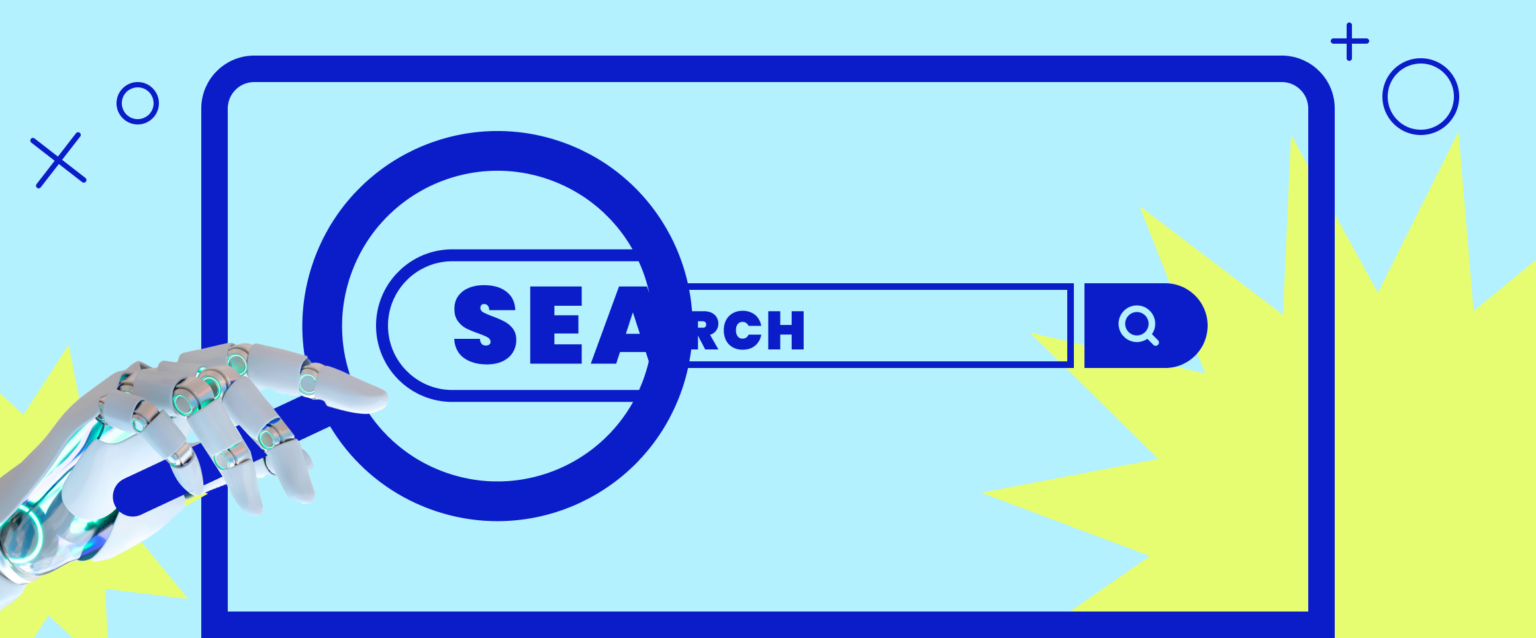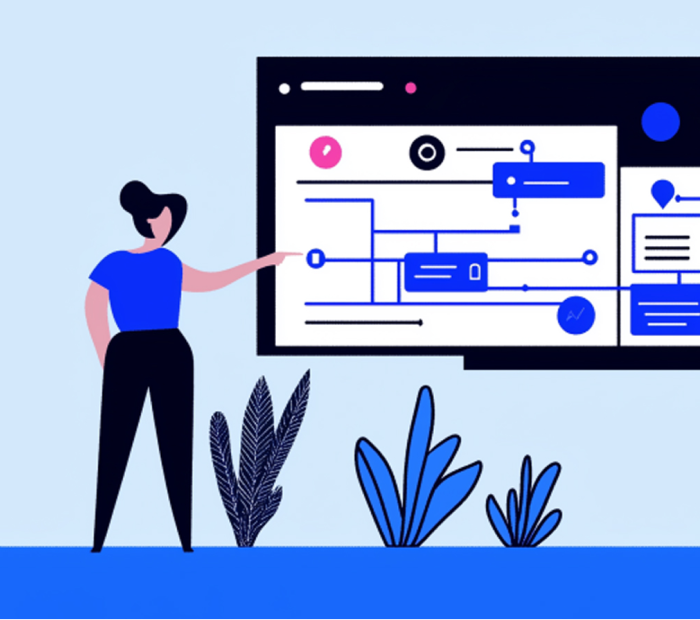AI-driven search optimisation
AI technologies are evolving the landscape of search engine algorithms, making them more adept at understanding user intent and delivering content that aligns closely with user queries. This shift is pivotal for organisations aiming to enhance their online visibility. AI-powered SEO tools can crawl through vast amounts of web data, evaluating the effectiveness of keywords, backlinks, and content relevance. By leveraging these tools, organisations can fine-tune their websites to better meet the criteria set by search engines, thereby improving their rankings and drawing more organic traffic.
Furthermore, AI’s ability to learn and adapt continuously means that it can help organisations stay ahead in the ever-changing world of SEO. Predictive analytics, another facet of AI, allows for anticipating future trends and user behaviours, enabling organisations to prepare content that aligns with upcoming demands. For purpose organisations, government agencies, higher education institutions, and not-for-profits, staying updated with these AI-driven insights can make a significant difference in how effectively they engage with their audiences and achieve their digital marketing goals.
Enhancing user experience with AI
AI-driven tools have significantly advanced in helping websites offer a more intuitive and responsive user experience. For instance, AI-powered chatbots can interact with visitors in real-time, providing answers to common queries, guiding them through complex forms, or directing them to relevant pages—all without human intervention. This capability is especially crucial for organisations like government agencies and not-for-profits, where timely and effective communication is essential but resources may be constrained. Additionally, AI can automate repetitive tasks, freeing up human resources to focus on more strategic activities that improve service delivery.
Moreover, AI enhances user experience by enabling more personalised web interactions. Through the analysis of data such as browsing history, location, and device type, AI technologies can adjust the content displayed to each user, making their visit more relevant and engaging. For higher education websites, this could mean suggesting specific academic programs or upcoming events based on the prospective student’s interests and previous interactions. This level of personalisation not only improves the user experience but also increases the likelihood of users taking desired actions, such as registering for events, applying for programs, or making donations.
Personalisation through AI
Personalisation, powered by AI, is transforming how organisations engage with their audiences online by offering tailored experiences that meet individual preferences and needs. AI analyses data from user interactions such as past visits, click patterns, and engagement levels to customise the content that appears for each user. This means that when a visitor returns to a site, the AI can dynamically present the most relevant information, whether it’s a tailored set of articles for a returning student on a university site or a personalised dashboard for a volunteer accessing a not-for-profit’s portal. This degree of personalisation not only enhances the user’s experience but also fosters a deeper connection between the organisation and its audience, potentially increasing loyalty and user satisfaction.
In the context of higher education and not-for-profit sectors, where the goals and interests of users can be particularly diverse, AI-driven personalisation is invaluable. For universities, AI can help prospective students navigate the plethora of courses, extracurricular activities, and educational resources, prioritising those that align with their academic and personal aspirations. For not-for-profits, AI can segment audiences based on their interaction history and demographic data, allowing for more targeted communications. This segmentation helps in crafting messages and appeals that resonate deeply with each subgroup, whether they’re long-time donors, new visitors, or active volunteers, thus optimising engagement and support for their causes.
AI and accessibility
AI is significantly enhancing the accessibility of websites, making them more user-friendly for people with disabilities. Through advanced algorithms, AI can automatically adjust web elements such as font sizes, colour contrasts, and even navigation structures to accommodate users with visual, auditory, or motor impairments. This adaptive technology ensures that websites are compliant with accessibility standards such as the Web Content Accessibility Guidelines (WCAG), which are crucial for public sector entities, educational institutions, and not-for-profits that aim to provide inclusive digital environments. By implementing these AI-driven adjustments, organisations can ensure that their services are accessible to a broader audience, thereby enhancing user engagement and inclusivity.
Moreover, AI technologies extend accessibility beyond visual and motor adjustments to include sophisticated language processing tools that improve comprehension for users with cognitive disabilities or those who speak different languages. These tools can simplify text, offer definitions for complex terms, or even translate content into multiple languages in real time. For organisations like government agencies and global not-for-profits, these capabilities are essential in breaking down barriers and ensuring that their messages reach and resonate with diverse populations. By leveraging AI in these ways, organisations not only adhere to legal and ethical standards of accessibility but also champion the values of equality and accessibility in the digital realm.
The future of AI in web searches
As AI technology continues to advance, its integration with web search mechanisms will deepen, shaping the future of digital interactions in several significant ways:
- Predictive Search Capabilities: Future AI enhancements will likely improve predictive search functionalities, allowing search engines to offer suggestions based on a user’s past search history and related activities. This will lead to quicker, more efficient searches where users find what they need with minimal input.
- Voice-Activated Search: The rise of voice search will continue to evolve as AI becomes more sophisticated in understanding and processing natural language. This means organisations will need to optimise their content not just for typed inputs but also for voice queries, which tend to be longer and more conversational.
- Visual Search Innovations: AI is set to expand capabilities in visual search, where users can upload images to find related content or identify products and information. This technology will be particularly beneficial for retail sectors and educational resources, where visual context plays a significant role.
- SEO Automation: AI will automate many aspects of SEO, from keyword research to content optimisation and link building. This automation will allow marketers and website managers to focus more on strategy and less on the technicalities of SEO implementation.
- Enhanced User Profiling: AI’s ability to analyse data will lead to more detailed user profiling, helping organisations understand the intent behind searches. This understanding will allow for more targeted content creation and advertising, aligning what users find with what they actually want or need.
These developments suggest a future where AI not only simplifies and enhances search capabilities but also creates a more intuitive, personalised web experience. As these technologies evolve, organisations will need to stay informed and agile, ready to adapt their digital strategies to harness the full potential of AI in search.
Transforming Search and Enhancing Digital Visibility for Purpose-Driven Organisations
Are you ready to unlock the full potential of AI for your not-for-profit? As a leading web design agency in Melbourne, Butterfly understands the unique challenges and opportunities that not-for-profits face in the digital landscape. We specialise in integrating AI technologies that enhance search optimisation, personalisation, and accessibility, ensuring that your organisation not only reaches but truly connects with your audience.
Frequently Asked Questions about AI and Web Search
How can AI improve SEO for not-for-profit organisations?
AI can help not-for-profits by analysing user engagement data to optimise content, thus improving search engine rankings and visibility to potential donors and volunteers.
What AI tools are available for government agencies to enhance user experience?
Government websites can use AI-driven chatbots for customer service, predictive search bars to suggest relevant information, and personalisation engines to tailor content to the user’s interests.
Can AI personalisation benefit higher education websites?
Yes, AI personalisation can help tailor the browsing experience for prospective students, showing them relevant courses, scholarships, and university life content to increase engagement and application rates.
What steps should be taken to ensure AI-enhanced websites are accessible?
Regularly auditing the website with AI tools that mimic different user disabilities can help identify and rectify accessibility issues, ensuring compliance with web accessibility standards.
How can purpose organisations leverage AI to improve their online presence?
Purpose organisations can use AI to analyse traffic and engagement patterns to better understand their audience, create compelling content, and effectively communicate their mission and impact.





